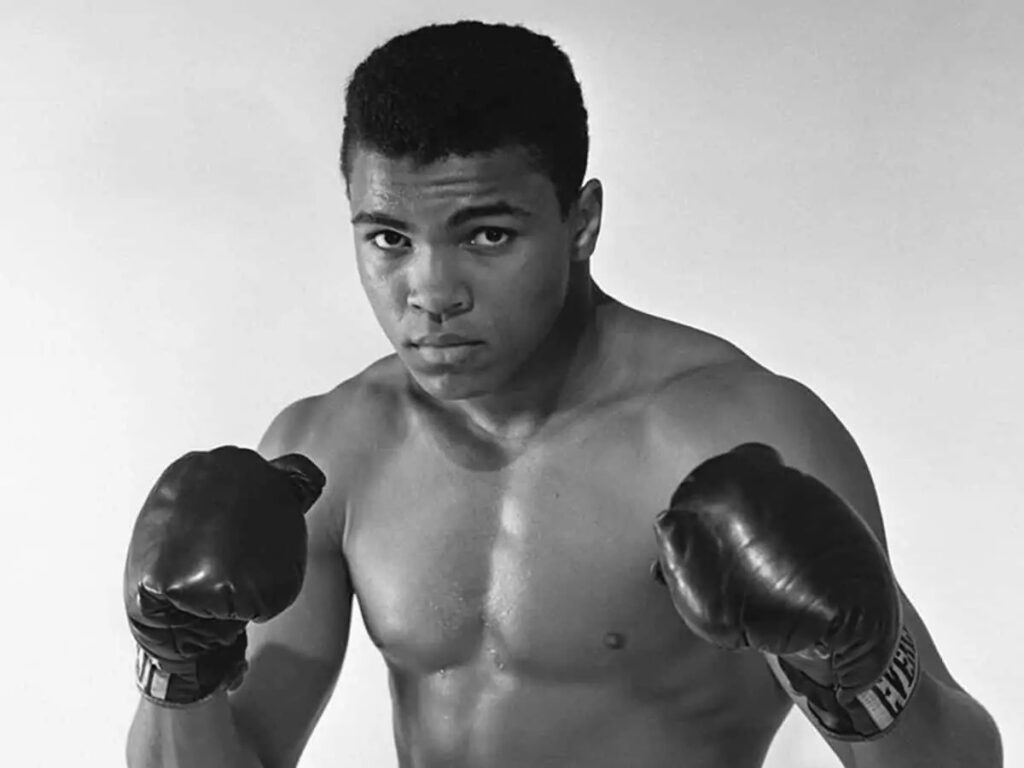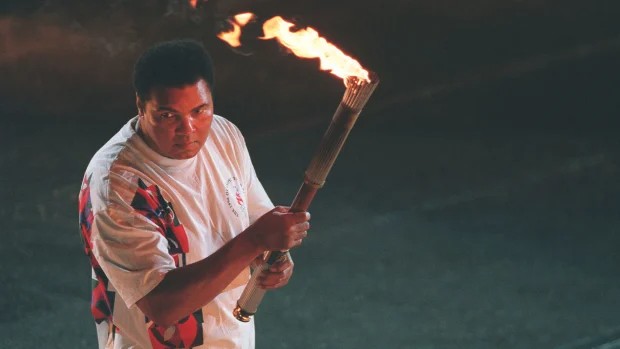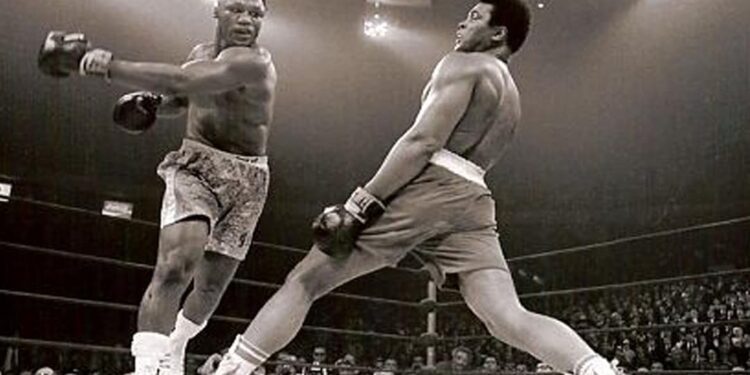Born Cassius Marcellus Clay Jr. on 17 January 1942, in Louisville, Kentucky, Muhammad Ali transcended the sport of boxing to become one of the most significant and celebrated figures of the 20th century. His journey from an aspiring young boxer to a global icon was marked by athletic brilliance, unwavering conviction, and an charisma that captivated millions.

Clay’s boxing prowess was evident from an early age. He began training at 12 and quickly rose through the amateur ranks, culminating in a gold medal at the 1960 Rome Olympics. This victory announced his arrival on the world stage, and he soon turned professional, embarking on a career that would redefine heavyweight boxing.
His early professional fights were characterised by his extraordinary speed, agility, and unique “Ali Shuffle.” He was known for his poetic pronouncements, often predicting the round in which he would knock out his opponents. This confidence, bordering on arrogance to some, was a key part of his appeal and cemented his public persona.
In 1964, at the age of 22, Clay shocked the boxing world by defeating the seemingly invincible Sonny Liston to claim his first world heavyweight title. Following this victory, he announced his conversion to Islam and changed his name to Muhammad Ali, a decision that would profoundly impact his life and career.
Ali’s adherence to his newfound faith led to a pivotal moment in his life in 1967 when he refused to be inducted into the U.S. armed forces during the Vietnam War, citing his religious beliefs. This stance led to his boxing license being suspended and his heavyweight title being stripped. He was also convicted of draft evasion, though this was later overturned by the Supreme Court. This period, which cost him over three years of his prime boxing career, cemented his image as a defiant voice against injustice and a figure of profound moral courage.

Upon his return to boxing in 1970, Ali engaged in a series of legendary bouts that would become etched in sporting history. The “Fight of the Century” against Joe Frazier in 1971, though a loss for Ali, was a brutal and iconic encounter. He later avenged this defeat. The “Rumble in the Jungle” against George Foreman in 1974, held in Zaire (now the Democratic Republic of Congo), saw Ali reclaim the heavyweight title through his masterful “rope-a-dope” strategy. This was followed by the epic “Thrilla in Manila” against Joe Frazier in 1975, a gruelling and unforgettable contest that many consider the greatest boxing match of all time.
Beyond the ring, Ali was a tireless humanitarian and a powerful advocate for civil rights and religious freedom. His later years were marked by his courageous battle with Parkinson’s disease, a condition attributed to the cumulative effects of boxing. Despite the physical toll, he remained a beloved global figure, using his platform to promote peace and understanding.
Muhammad Ali passed away on 3 June 2016, leaving behind a legacy that extends far beyond his boxing achievements. He was not just a boxer; he was a cultural phenomenon, a symbol of resistance, and a testament to the power of conviction. His impact on sport, civil rights, and global consciousness ensures his enduring place as “The Greatest.”
newshub finance



Recent Comments